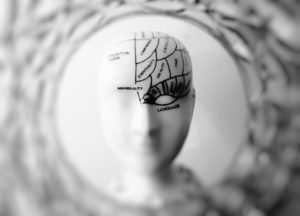There is a saying by Alan Kay, an educator and computer science pioneer that isn’t about addiction or substance abuse at all, though it might help those who hold certain myths about addiction in high regard.
“Context alone is worth 80 IQ points.”
What he meant by this is that if you know what a situation is, possibly history, studies, previous outcomes and other related information about the problem you are facing, you have a higher chance of being successful in solving that problem. In his example, he mentioned that kids today are far more intelligent by our measurements because they can do algebra at 14, thus making them more equipped to solve problems that would have stumped the wisest of men before algebra was even invented. Teaching knowledge, he says, is like giving people an extra brain. Giving someone a wider space for which to look at a problem allows people to understand that problem more completely, making that problem less mystical and more practical to solve.
Society tends to have a fairly regressive view of addiction. In America, it’s largely seen as something that is purely a choice and that people who suffer addiction deserve ‘tough love’ and that they should ‘fix themselves’. Unfortunately, this is ignorant to the decades of studies by the medical and psychology fields into the condition, which the medical and psychology communities have agreed is an illness. This alone might make someone reconsider the framing of substance abuse disorder. After all, if it’s a choice, then so is cancer, headaches, high cholesterol and nearly every other sickness one can have. It would also mean that the way to cure those things is to tell people to heal themselves of their cancer, simply will the headache away, clean their own arteries and simply change their behaviors so that their broken leg will fix itself overnight.
Addiction is a combination of dependence of a chemical nature as well as a psychological one. Maybe one of the reasons it’s difficult for pop culture see it as an illness is that it has this strange overlap between the two ways that it is fully defined. Many addictions come with neurotransmitters of pleasure and pain being misfired, giving a person’s deep behavior a rewiring effect which swaps healthy behavior with unhealthy behavior. Some addictions actually cause physical dependence where a person can actually die if they stop using a substance, if it doesn’t simply make them physically sick. Addiction isn’t impossible to understand as an illness, but it requires changing a viewpoint shift so that the negative views toward the disease aren’t perpetrated so freely. This change alone might go a long way toward people seeking proper treatment for their substance abuse problems at a drug addiction center.
If you or anyone you know suffers from addiction or is looking for a free addiction hotline in Seattle, call Northbound at 855-858-6803. Northbound offers drug rehab help for those afflicted with the illness.
Author
-

President, CEO & Founder at Northbound Treatment Network
Paul Alexander is the CEO, President & Founder of Northbound Treatment Network in Newport Beach, California. He believes wholeheartedly in transformational leadership, organizational health and effective, fully integrated substance use disorder and mental health treatment. With over 27 years of experience in behavioral healthcare, Paul has extensive knowledge of “in vivo” treatment modalities, clinical development, operations, strategy, marketing and financial planning. He has been widely recognized for his development of collegiate-based residential treatment programs for students in recovery and authored a research study at The University of California confirming this modality’s effectiveness.
Paul’s comprehensive professional experience, willingness to innovate, and emphasis on organizational health are vital factors in Northbound’s continued success. Paul received his Certified Addiction Treatment Specialist training at Saddleback College in Mission Viejo, CA, and was awarded Outstanding Alumni Service Award in 2002. Paul holds a Bachelor of Arts degree in Criminology, Law and Society, Summa Cum Laude, from University of California, Irvine, and a Juris Doctorate degree from Loyola Law School of Los Angeles. Paul currently serves on The National Association of Addiction Treatment Providers (NAATP) board. In addition, he serves on The Family Recovery Foundation board and The CarePossible board in Orange County; both organizations are committed to raising funds for family recovery and treatment for former military personnel. Paul is in recovery himself and lives in Orange County with his wife Silvana and his two young sons, Noah and Dean.







